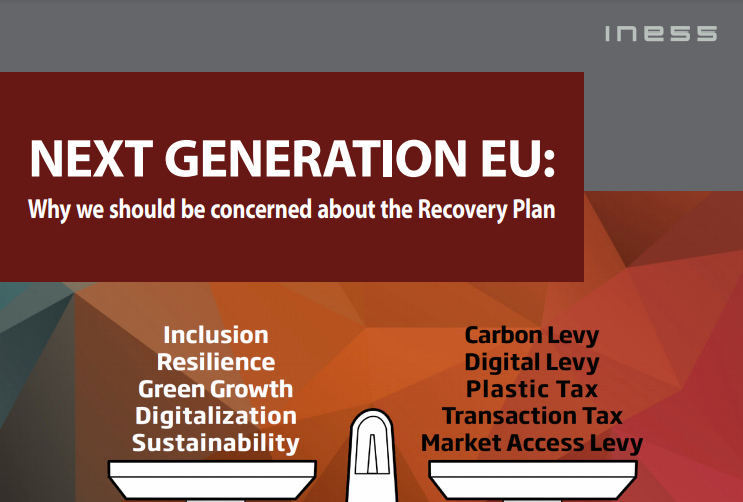Next Generation EU and its crucial part, Recovery and Resilience Facility, promise to bring an era of growth to the European Union. Can this promise be fulfilled, and if so, at what cost? The Slovak Institute of Economic and Social Studies (INESS) has just released its new study titled Next Generation EU: Why We Should Be Concerned about the Recovery Plan.
DOWNLOAD FULL STUDY [IN PDF]
The publication pinpoints 10 reasons why the NGEU may have much lesser effect than anticipated by the public and politicians and what kind of economic damage it can cause for the future.
Executive Summary
Next Generation EU does not only bring billions, it also imposes a burden on entire generations of citizens, tax payers, and entrepreneurs. The following lines contain several categories of problems brought about by the NGEU. These include:
- Sudden EU centralization
- Permanent temporariness
- Pandemic as a pretend justification
- One size doesn´t fit all
- Unrealistic amounts of money for efficient absorption
- Growing bureaucratic apparatus
- EU becomes more isolated from global markets
- Increased central planning
- Lack of motivation for true reforms
- The adverse effects of new taxes
Our main conclusion is that big issues faced by Member States (social systems unable to face demographic changes; states´ inefficient management of entire sectors; slowing down the reconstruction of declining sectors, etc.) and by the EU itself (wasting resources; inefficient additional schemes; inefficient agricultural policy, etc.) remain unresolved.
They are still present and NGEU can only conceal this fact for so long.
Continue exploring:
Call for Papers: COVID-19 Pandemic and Human Rights
Report: How to Contain Polish Rule of Law Crisis, Reform Justice System?



